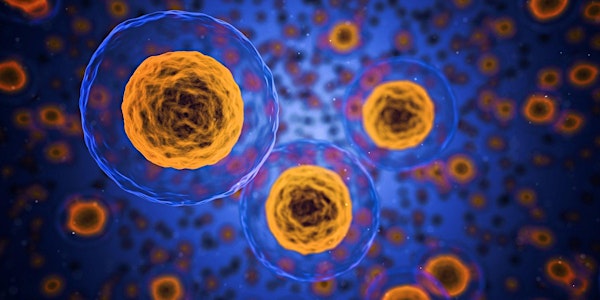
Design in Living Cells
Join us for our ongoing research cafe series, an open forum where all are invited to discuss developments in research.
Date and time
Location
Online
About this event
ZOOM LINK: https://zoom.us/meeting/register/tJUrcuGsqj4jGtUo8V28teO715UAaF87jCeG
*This is an online event. The link to join the session will be sent to those who have registered closer to the event.
The Talk:
Bacteria are of the most primitive forms of life on the planet. However, even the basic task of growing and surviving require the precise orchestration of what is a complex network of chemical reactions. Who are the conductors of this orchestration? An array of control systems encoded in the cell’s DNA. In this talk, I will touch on some examples of control systems in bacteria, and give a high-level view of their roles and how their design is beautifully suited to that role, including examples from my own work.
I will then share a snapshot from my current work on how learning from nature may enable us to repurpose bacteria for the sustainable production of chemicals for use in fuels, food and as therapeutics. As of yet, this is still a distant dream, but growing somewhat closer. Can it become reality? Should it? Let’s discuss!
The aim of this café session is: (i) to share my interest on the designs of natural systems; (ii) to demonstrate and spark interest in interdisciplinary research, and (iii) exchange thoughts with audience on engineering biology.
The Speaker:
Dr Ahmad Mannan is a postdoctoral research associate at the University of Warwick Integrative Synthetic Biology Centre, with an interest of understanding how biological control systems work using mathematical models.
With a first degree in Maths from Imperial College London, and doctorate in Systems Biology from Surrey, his research is highly interdisciplinary, lying at the interface between mathematics, engineering and molecular biology. In particular, he has been fascinated with: (i) understanding how control-systems encoded in the DNA enable the cell to adapt to changing conditions, and (ii) how to exploit these controls to develop bacteria as micro-factories for the sustainable production of useful chemicals.
The interdisciplinary nature of Ahmad’s research has given him the chance to conduct his work in life sciences, maths and engineering departments, and the pleasure to learn from a growing network of experimental collaborators in Japan and USA.